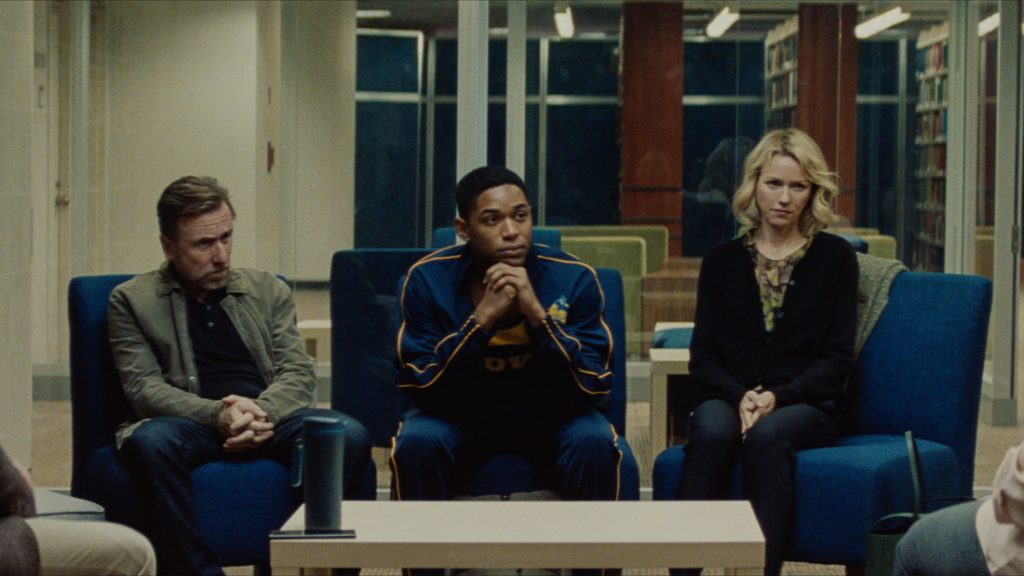Luce is one of those well-written, excellently delivered, incredibly thought-provoking films you don’t come across very often. Julius Onah’s psychological thriller is captivating, insightful and ultimately unforgettable.
“What’s the difference between punishing someone for being a stereotype and rewarding them if they’re not?” The question Luce ‘s protagonist asks halfway through the film is the perfect way to sum up what Julius Onah’s clever, compelling, controversial drama is all about. Based on JC Lee’s acclaimed play with the same name, Luce is one of those exquisitely complex films you rarely come across these days. It’s one of those movies that susprises you till the very end with its unpredictable twists, and it’s also a story that approaches a series of important themes by raising questions you will find yourself thinking about for a long time after you’ve seen it.
At the very centre of most of these questions is Luce‘s enigmatic protagonist, whom the film is named after. Played to perfection by Kelvin Harrison Jr., our main character is a high school boy who appears to be burdened with many responsibilities, starting with his own name, which quite literally means “light”. Diligent pupil and successful athlete, Luce is an African American teenager who has been turned into a poster boy for the American Dream by the adults in his life.
Partially responsible for Luce’s unusual predicament are his parents, Amy and Peter (Naomi Watts and Tim Roth), who adopted him from a war-torn country where he was destined to become a child soldier. And, though many years (and many therapy sessions) have gone by since he left Eritrea, his experiences before and after the adoption still had a significant impact on his identity. Which doesn’t mean his parents disregarded his origins: in fact, it was quite the opposite.
Amy and Peter’s attempt to be liberal and open-minded turned their son into what they obliviously thought would conform to their own definition of “normal”. More than that, Luce’s careful upbringing turned him into what they perceived to be an example of “good black behaviour” – the kind of well-behaved son a parent can be proud of, and the kind of overachieving student teachers can make an example of in class. Most of all, the perfect product of our society, and the kind of person who embodies all the qualities and character traits the “model” African American teenager should have.

Luce is so much more than that, of course: he is clever, eloquent, determined, with a fascinating personality and many opinions of his own. But it’s easy to overlook a person’s character when that person is only ever perceived as a symbol.
If his parents’ questionable (though involuntary) choices turned their son into a stereotype, Luce’s extremely opinionated history teacher brings these dynamics to a whole new level. Played by a flawless Octavia Spencer, Ms Wilson is one of the most fascinating characters in the film, and her relationship with Luce is part of what makes this movie so clever. Ms Wilson’s interactions with her favourite student are mainly dictated by the fact that, just like Luce, she is African American person, but, unlike our protagonist, she was born and raised in America. But that’s not all: although teacher and pupil might appear to have a few things in common, it doesn’t take long to realise that the two of them couldn’t be more different.
Ms Wilson has very specific ideas on race and privilege in America, and these ideas are not up to debate. To her, Luce is a symbol, and, as long as his opinions and behaviour conform to her narrow-minded ideas, he will always be put on a pedestal. But it’s very easy for a “saint” to be turned into a “monster”, and that is precisely what happens in the film, as an insignificant event makes Ms Wilson question not only Luce’s perfect school record, but also his intentions and, ultimately, his whole personality.
“I only get to be a saint or a monster”
Luce Edgar
Which makes the situation escalate further and further. Luce’s family and friends are dragged into a neverending argument in which nothing ever stays the same, and everyone’s motives are questioned until we don’t know who or what to believe anymore. It’s in portraying these complex, sometimes absurd but always believable dynamics that Luce truly excels, as not only is the whole truth revealed only at the very end, but the journey is as intriguing and compelling as it could be.
One of the themes Luce explores is the scapegoat dynamic, and it does it so well that what originates as a family drama about a perfect teenage boy turns into an edge-of-your-seat psychological thriller that keeps on surprising. Lee and Onah’s screenplay makes the narrative move forward in an unexpected yet incredibly natural way, and, as we quickly become attached to its extremely relatable characters, it makes us question everything we see while always keeping us entertained with the perfect dose of satire.

It’s a constant cycle of pointing fingers and choosing sides in the name of political correctness, and it’s also a painfully accurate analysis of human behaviour that spares no one and raises important questions on identity and morality. As major characters evolve in unforseen ways, new dynamics emerge. And, when the confrontation finally happens, it’s as wildly entertaining as it is deeply meaningful.
Luce is the story we didn’t know we needed. It’s ironic, engaging and hugely entertaining, but it’s also insightful enough to make you think and controversial enough to spark a debate. Which is precisely the reason why not everyone is going to like it. Because, though Luce‘s satire helps the film approach complex themes in a lighter, always enjoyable way, its analysis of human nature is much darker and much more pessimistic.
Though Luce ultimately lets us make up our mind on what kind of message we want to remember, it’s hard not to perceive it as a defeat of the American Dream and all it stands for. As we become painfully aware that even the very same pronounciation of Luce reminds us of the verb “to lose”, we can’t help but wonder what his destiny will be. Will he take the easy way out and remain a “saint” or will his anger turn him into a Taxi Driver-like “monster”? It’s up to us to decide.
Luce premiered at the Sundance Film Festival in January and is now available to watch on digital and on demand. Watch Luce!

